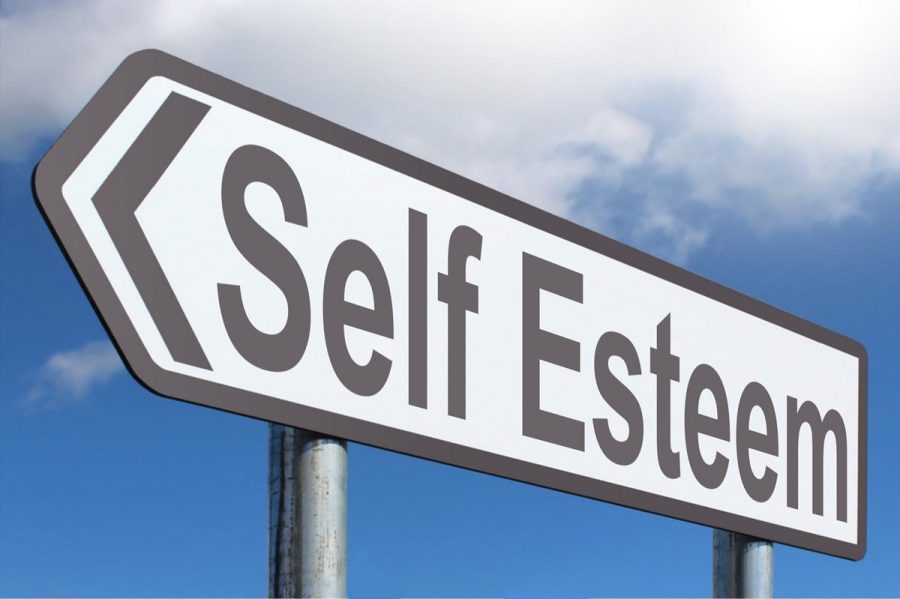Knowing Yourself; What is Self-Esteem?
Self-esteem is crucial to the individual.
April 3, 2018
Self-esteem; confidence in one’s own worth or abilities, self-respect. Many young adults struggle with their self-esteem. Puberty is a time when the body changes and adolescents must find comfort in themselves.
“I think being a teenager, unfortunately part of the territory that you have to go through [are] those issues of self esteem,” Kris Wood, a psychology major and Combs teacher, said. “As an older person, I do say we all kind of have struggled with ‘Am I good enough?’.”
Self-esteem, similar to self-concept, is connected with body image, as well as one’s perception of personality and belief in how others view them.
“Self-esteem is kind of how you view yourself and how happy you are with yourself,” school Psychologist Clay Youngblood said. “Self-concept is similar; do you view yourself as being competent?”
The Queen’s University of Belfast identified the key difference between self-concept and self-esteem as the emotional impact. Self-concept is the facts an individual knows about themselves, whereas self-esteem is how much an individual values and how they feel about themselves.
“This is the time of life [adolescence] you start to see that life is competitive, and that goes with grades, that goes with looks, that goes with status,” Wood said. “That goes with all these things that we value in our society.”
Self-esteem deals with different branches of insecurity, body image, self-value or self-worth, and self-love. It can be affected by outside factors or intrinsic factors, like self-comparison.
The QUB continued by saying that comparison of oneself to others can raise or lower an individual’s self esteem. Around four years old, children start comparing themselves to others, and body size awareness usually starts around the age of five.
High schoolers are greatly affected by a negative body image with 44 percent of girls and 15 percent of boys attempting to lose weight. About 53 percent of American girls are unhappy with their bodies, and by the time they turn 17, that number jumps to 78 percent according to the Park Nicollet Melrose Center. More than 40 percent of boys attempt to gain muscle mass in middle school and high school as well.
“In our society we have generally valued men more for their productivity and women for their looks. Women now are living in a society that is much more visually based with social media and things like that,” Wood said. “I think that pressure is increased upon girls more.”
Although girls are generally shown to be more affected by the social stigma behind body image, boys don’t go completely unaffected.
“[With] skinny guys, there’s kind of a stigma there because they’re still considered boys and guys that are bigger are built more like men. We base a lot of social status on athletics and how strong somebody can be, and for shorter, skinnier guys or guys that aren’t as athletic, [they] don’t feel like there is good,” Wood said. “That can affect how they work, what sports they go out for, things like that.”
The ideal that is projected on society is now generally spread through social media.
“I think that [social media is] bad in the way any other media [is], tv, magazine, whatever it is. There’s an ideal that we project upon society,” Wood said. “At least we take it as an ideal, and so when we don’t look or act like what everyone accepts [as] the best, then we consider ourselves not as good.”
Despite this, social media also provides positive outlooks for those with low self-esteem.
“It can also do good things, especially the internet and social media. People can see that there’s more people out there like them. I think that, that can really help people to identify with other people and say ‘Oh, I’m not alone’,” Wood said. “That can be really, really good. But obviously the effect of ‘I don’t look like them’ can really be detrimental to a lot of people.”
Those that are affected by low self-esteem can use different techniques to increase their self-esteem.
“I think connections with friends are important. The more isolated someone is the harder it will be to have a different opinion of themselves. Having good, positive friendships,” Youngblood said. “Family is very important. Self-esteem is being developed when you’re a little kid and how you interact with your mom and dad and brother and sister affects your self-esteem later on. Teachers can make a big difference, but I think for the person who struggles with self-esteem, part of it is just reaching out to someone they really trust and say[ing] ‘I’m struggling with this’. That person can provide all the evidence of how this person is special and talented and maybe that person is being hard on themselves.”
Mind.org also has tips on how to increase self-esteem, such as avoiding negative self-talk and focusing on the positives, as well as getting support if things become overwhelming.



